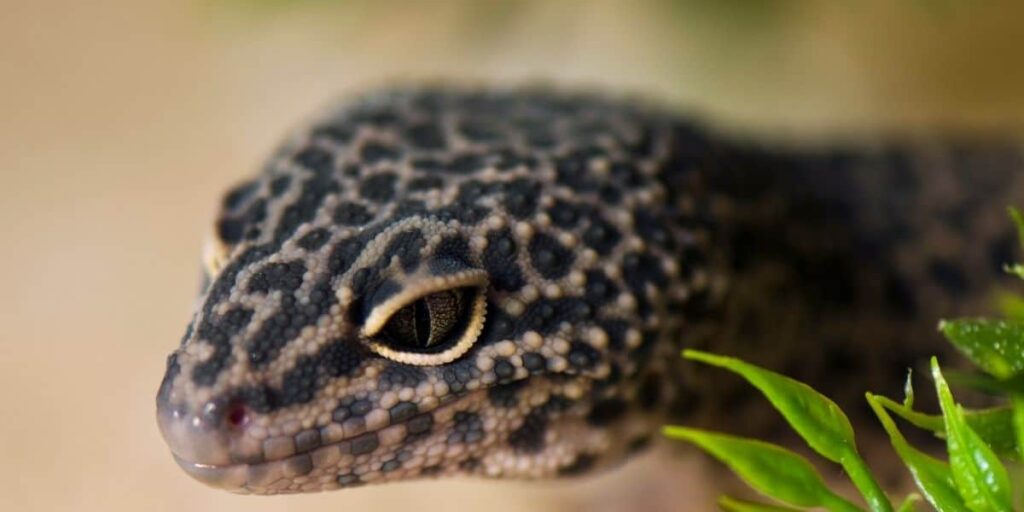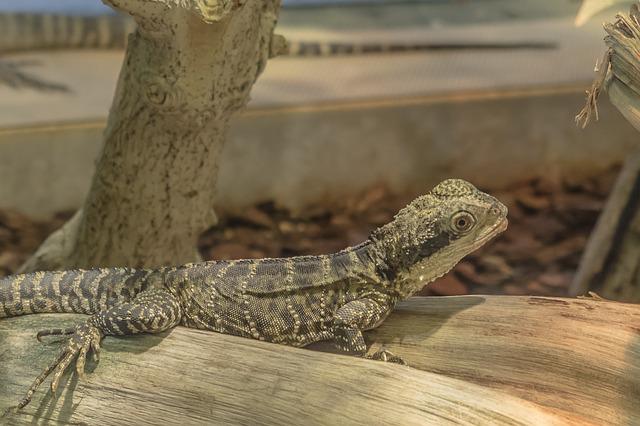Leopard geckos are one of the most popular reptilian pets and they are known to be relatively easy to care for; once you have everything set up. However, much like any animal, there may be times when you find that your leopard gecko has problems and it is important to address these immediately.
One of the most common issues that pet owners face is that their leopard gecko stops eating.
From time to time your leopard gecko may use his appetite and this could be for a variety of reasons. The cause may be an illness or it could be a result of something that he has eaten. In a lot of cases, it will not be anything serious and you may be able to solve the problem from home.
Of course, there could be instances where things are more serious and you would need to have your pet looked at by your vet. But before you do, take a look at our handy guide to see if you can diagnose and deal with the problem yourself.
Why Is My Leopard Gecko Not Eating?
Before we begin looking at the reasons that your leopard gecko may have gone off his food, it is important that you look at certain aspects of his behavior. This can better help you to determine the cause of the problem. You can begin by asking yourself some of the following questions.
- Is my leopard gecko toileting properly or have I noticed a decrease in his bowel movements?
- Have a moved the enclosure to somewhere that the temperate might be affected, such as near a window, door, or other draughty location?
- Has my leopard gecko recently suffered a trauma or injury?
- Have I noticed signs of illness? Does my pet appear to be sluggish or unresponsive as well as being off his food?
There are several reasons why your pet may have lost his appetite and as we have mentioned, it is unlikely to be anything drastically serious. There are things that can be a little more urgent but in the main, you will probably find that one of the following reasons is the cause.
It’s Cold
One of the most common reasons that your pet may have stopped eating is simply because he is cold. These creatures come from a warm climate and as such, require the temperature to be consistently warm in their enclosure.
You may not notice right away if your heat bulb gives out but your pet certainly will. There could be problems with the heat mat or it may be as simple as a draught getting into your leopard geckos enclosure.
Being cold will cause him to go off his food but boosting the heat again can bring his appetite back.
Furthermore, you should pay attention to the temperature changes between seasons, especially if you live in a country where there is a marked difference between the two.
Your Pet Is Sick
Another of the most common reasons that a leopard gecko might go off her food is that she is not feeling great. Think about when you don’t feel well, one of the first things you notice is a decrease in your appetite and just because she is a different species, this doesn’t mean that your pet won’t react in a similar way.
One of the most likely scenarios is that your pet has caught a chill, particularly if any of the temperature problems we have discussed have been at play.
Being exposed to a draught could cause a respiratory infection in your pet and this is one of the most common illnesses for these creatures going off their food.
You will want to take her to see the vet and this is important as he or she will also be able to diagnose other health problems that could be causing appetite loss.
These might be blockages or growths in the gut, ulcers, and other illnesses.
Your Pet Is Injured
If you know that your leopard gecko is injured, for example, if you saw an incident occur or have noticed any kind of wound, sore, or another injury, then you might let your mind rest. This is likely the cause of the gecko stopping eating.
However, if you are doing a little detective work, it is worth giving your pet the once over to check whether he has sustained any injuries. When leopard geckos are hurt, this can cause them to go off their food and you can expect their appetite not to return until they are feeling better.
When checking your leopard gecko for injuries, you should pay close attention to the tail where injuries are common.
You must also look at his eyes and mouth to see if there are any abscesses, growths, or sores. The toes are also a common place for leopard geckos to become injured.
Impaction
Impaction occurs when a reptile’s digestive system becomes blocked; you might simply compare it to constipation in humans. The best way to know whether your pet is impacted is to take a look at her recent bowel movements.
If she has not been defecating as usual, or it has been a considerable amount of time since her last movement, impaction could be the culprit.
Of course, if her system is already backed up, the leopard gecko is not going to want to fill it any further and this is why she may go off her food.
The condition is most commonly caused when the animal eats a particularly hard or large meal so do look back over her recent meals to further determine if this could be an issue.
Relieving the problem can be done at home, you do not need to see a vet immediately. Twice a day, you should place your gecko in a warm bath and massage her belly.
This should be enough to loosen the bowels and allow the lizard to pass the fecal build-up.
However, if after a few attempts, your pet has still not emptied herself, it is important to have her seen by a vet.
Eye Problems
It might surprise you to learn that the issue could be that your leopard gecko cannot see his food. It is not uncommon for these animals to retain skin on the eyes and this can block their vision.
This typically happens when the lizard has shed their skin but the process was not done completely.

The most common reason that a leopard gecko would not shed properly is because of incorrect humidity levels in the enclosure.
When they are trying to catch moving prey, it is made almost impossible by this eye problem. Furthermore, issues such as abscesses and ulcers can affect the vision causing the leopard gecko to stop eating.
How To Avoid A Loss Of Appetite
If you have considered all of the things that we have already discussed and you have not noticed an improvement in your leopard geckos appetite then there could be a more serious underlying health condition.
In this case, it is essential that you book an appointment to see your vet as soon as possible.
However, there are some things that you can do to prevent your pet from losing his appetite in the first place. Let’s take a look at these.
- Try to avoid certain foods that could lead to impaction such as super worms.
- When handling your pet, be gentle and careful as these delicate creatures may easily become injured. Never hold your pet while standing up as there is a chance that she could fall.
- Make sure that the temperature of the enclosure is always properly maintained and that there are no items inside which could harm your pet.
- If you do notice any signs of illness, be sure to get this looked at as soon as possible to prevent further issues from developing.
Conclusion
Leopard geckos are beautiful animals that are often kept as pets, however, as an owner, you may sometimes notice that your pet’s behaviors changes.
One of the most common behavior changes in these pets is a lack of appetite and there could be a number of reasons why this has happened. Your pet may be sick, injured, or could be suffering from impaction.
However, the most obvious reason is that the temperature in the tank has fallen and this has put your pet off eating.
- Do Black Caiman Live in Groups? Exploring the Social Behavior of These Large Reptiles
- Do Black Caiman Have Predators? Exploring the Threats to This Amazonian Reptile
- Do Black Caiman Eat Toucans? Exploring the Diet of Black Caimans in the Wild
- Do Black Caiman Eat Sloths? The Truth About the Diet of Black Caiman
- Can a Black Caiman Kill a Human? Exploring the Predator’s Potentially Deadly Bite




